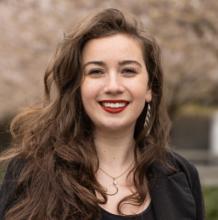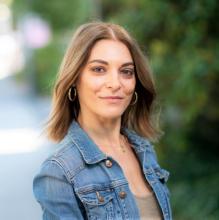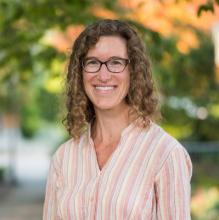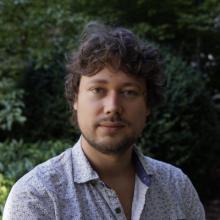My research is seeking to respond to the passionate and pervasive chorus of women’s voices demanding justice to end the genocide against Indigenous women and girls in Canada, as articulated in the National Inquiry into Murdered and Missing Indigenous Women and Girls. By participating in the colonial research system, many research practices cause further violence to women already affected by violence. Using arts-based inquiry, my focus will be hearing from those on the frontlines of complex health intervention research to understand their stories of resistance as sites of systemic change.
Research Description
My dissertation is seeking to respond to the passionate and pervasive chorus of women’s voices demanding justice to end the genocide against Indigenous women and girls in Canada, as articulated in the National Inquiry into Murdered and Missing Indigenous Women and Girls. Their cries demand a response from complex health intervention researchers working with women affected by violence. Complex health interventions take seriously the complexity of women’s contexts and have been proven to be an effective way to address the inequities experienced by women affected by violence. The need is paramount for interventions that support the lives of women, particularly Indigenous women, affected by violence. Research itself, as an enterprise, has a long and ongoing history of perpetuating colonial violence and is complicit in the harms against Indigenous women and girls. As such, even research that claims to support Indigenous women and girls needs to address the possibility that the research process itself could be causing further harm. The MMIWG report creates an obligation for complex health intervention research to identify points of resistance to the status quo research practices. Arts-based inquiry will be used to elicit and share the stories of resistance. If we understand the ways the structural violence of status quo research practices in Canada is being resisted, we can contribute to complex health intervention research changing in a way that better supports women affected by violence.
What does being a Public Scholar mean to you?
To be a Public Scholar is to put your skills and abilities at the service of communities for the sake of transformation and to counteract injustice. It is an active orientation, a way of giving back, a means of facilitating dialogue toward collaborative action for the “public good.”
In what ways do you think the PhD experience can be re-imagined with the Public Scholars Initiative?
The Public Scholars Initiative is re-imagining the power imbalance of the Ph.D. experience. Say, for example, a scholar completed a “typical” Ph.D. and in the process gained confidence in their ability to think through and solve problems. They have then been trained with the implicit assumption that their concept of the problem and its solution will work. It is an isolated, insular process that results in solutions that do not engage the complexity of life. The Public Scholars Initiative is re-imagining the Ph.D. experience for students by bolstering their ability to listen to communities, to encourage their taking the lead from others, and to facilitate collaborative action for sustainable, positive change that impacts the lives of real people. It is an Initiative that employs the imagination, compels a visioning of what could be, and provides support in the difficult journey of going against the grain. As such, The Public Scholars Initiative is redefining success in the Ph.D. journey for students and providing a community who together disrupt colonial, neoliberal systems of educational privilege that is divorced from communities and instead join hands to move toward a better tomorrow.
How do you envision connecting your PhD work with broader career possibilities?
Through my Ph.D. work and the broader career possibilities that follow, I intend to work with communities to further the transformative work that is being done, to amplify the voices of those being ignored, and to facilitate connection and conversation to propel positive social change.
Why did you decide to pursue a graduate degree?
I am pursuing a graduate degree to become uncomfortable; to invite the complexity of life, of thought and of action to challenge my ways of knowing. I embrace this discomfort with the hope of being more useful to communities pursuing transformative action against injustice and oppression.
Why did you choose to come to British Columbia and study at UBC?
My decision to study at UBC was entirely based on the opportunity to work with my co-supervisors: Dr. Vicky Bungay & Dr. Susan Cox. It is an honour and a privilege to learn from such distinguished, engaged, and innovative scholars.
To be a Public Scholar is to put your skills and abilities at the service of communities for the sake of transformation and to counteract injustice. It is an active orientation, a way of giving back, a means of facilitating dialogue toward collaborative action for the “public good.”




